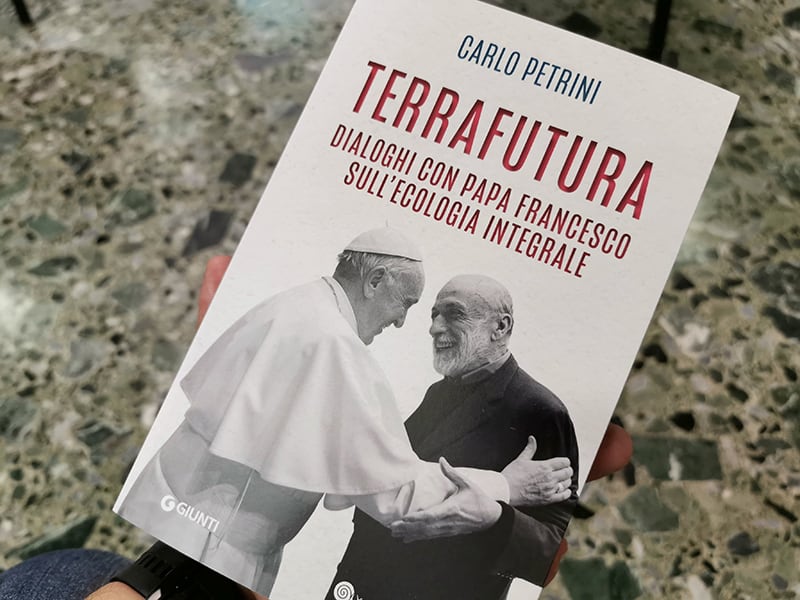
VATICAN CITY (CNS) — In a new book featuring his conversations with Pope Francis, Italian environmental activist Carlo Petrini said he hopes the published discussions will contribute to the groundwork laid out by “Laudato Si’.”
The book, titled “TerraFutura (Future Earth): Conversations with Pope Francis on Integral Ecology,” is meant to highlight the importance of the pope’s encyclical on the environment and its impact on the world five years after its publication in 2015.
“If we want to use human life as a metaphor, I would say that this encyclical is entering its adolescence. It has passed its infancy; it has learned to walk. But now comes the time of youth. I am confident that this growth will be very stimulating,” Petrini told journalists Sept. 8, presenting the book at the Vatican’s Sala Marconi.
In 1986, Petrini founded the Slow Food Movement, a grassroots organization that promotes the preservation of local food culture and traditional cooking to counteract the rise of fast food chains and food waste.
The activist and author told journalists that he first spoke to Pope Francis when the pope called him in 2013, several months after his election. The book features three conversations between Petrini and the pope from 2018 to 2020.
In a conversation that took place May 30, 2018, the pope recalled the genesis of his encyclical, “Laudato Si’,” which he said began in 2007 during the Fifth Conference of Latin American and Caribbean Bishops in Aparecida, Brazil.
Although many of the Brazilian bishops spoke passionately about “the great problems of the Amazon,” the pope admitted that at the time, he was often irritated by their speeches.
“I remember very well feeling annoyed by their attitude and commenting, ‘These Brazilians are driving us crazy with their speeches!'” the pope recalled. “At that time, I did not understand why our assembly of bishops had to devote itself to the theme of the Amazon; for me the health of the world’s ‘green lung’ was not a concern, or at least I did not understand what it had to do with my role as bishop.”
Since then, he added, “much time has passed and my perception of the environmental problem has completely changed.”
The pope also agreed that many Catholics had the same reaction to his encyclical, “Laudato Si’,” so it was important to “give everyone time to understand it.”
“However, at the same, we need to change our paradigms very quickly if we want to have a future,” he said.
In a conversation with Petrini on July 2, 2019, several months before the Synod of Bishops for the Amazon, the pope also lamented the focus of “some journalists and opinion writers” who claimed that “the synod was organized so that the pope can allow Amazonian priests to get married.”
“When did I ever say that?” the pope said. “As if this were the main problem to worry about. On the contrary, the Synod for the Amazon will be an occasion of discussion and dialogue on the great issues of our day, issues that cannot be ignored and that must be at the center of attention: environment, biodiversity, inculturation, social relationships, migration, fairness and equality.”
Petrini, who is agnostic, told journalists that he hopes the book will bridge the gap between Catholics and non-believers and unite them in building a better world for future generations.
When asked if his beliefs have changed after his discussions with the pope, Petrini said that although he is still agnostic, anything is possible.
“If you want a beautiful spiritual answer, I’ll quote one of my fellow citizens of Gottolengo,” a northern Italian town located in the Lombardy region. “In Gottolengo, they say, “Never put limits on (divine) providence,” Petrini said.









